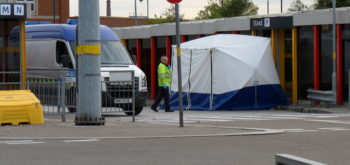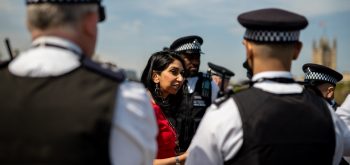‘Use your situation to change your destination’ is the catchphrase created by young people working with the Howard League for Penal Reform.
Turning that ideal into a reality is a big challenge. Firstly there’s the young people’s situation, they are young people in the criminal justice system, most of whom have been in custody, all of whom have been arrested or cautioned by the police. They want to use that experience to make things better for young people like them. Some of them have pretty horrific stories to tell about their experiences, all of them can offer thoughts and advice about what needs to change.
But changing your destination is a huge ambition. Our U R Boss project supports young people in the criminal justice system to secure their legal rights and to have an impact on policy and practice. When young people find themselves caught up in the web of the criminal justice system, the thought of having a say, let alone changing your destination, feels very remote.
In so many cases, there is one decision that makes all the difference to young people’s lives; and that decision is often made by the police. The day to day police on the beat are so often the initial gateway for young people into an expanding world of criminal justice. The decisions that are made in a few seconds, perhaps in the heat of the moment, can stay with a young person for the rest of their lives.
And this is where it can all go wrong.
Young people tell us there is a problem with the police.
‘It all needs changing, not just the officers but all of it and the ones at the top need to know what the officers on road are doing and how they are acting.’
Young person, 13
U R Boss found that many young people felt victimised and stereotyped by the police. Young people caught up in the criminal justice system felt the police were often prejudiced, racist and too soon to accuse young people of committing crimes. This leads to a toxic relationship between many young people and the police.
U R Boss wants to see this change. On November 15th a new layer of governance, local Police and Crime Commissioners (PCCs) will be elected in every police force area, except London. These new posts will have the power to bridge the gap between young people and the police to make everyone in our communities safer.
Our new campaign, ‘Keep it clean’ is asking all PCC candidates to pledge that:
‘I will run a clean campaign, which avoids stereotyping or using negative language about young people. If elected, I will consult young people when developing my police and crime plan, especially those with direct experience of the criminal justice system.’
Young people are the experts in finding solutions when it comes to youth crime. This is especially true of young people who have been caught up in crime themselves. We want candidates to draw on the real life experiences of these young people, involve them fully when drawing up their policies and, when they write their plans for tackling crime.
The young people we work with are often referred to as ‘hard to reach’. This isn’t necessarily true, just ask a young person what they want from a police leader and the answers are simple:
‘They need knowledge of that area so maybe before they join they should have to do youth or community work in that area. Then they may understand the problems people face and not just judge on people’s actions.’
Young person, 13‘Police should have more training on how to work with young people, cos young people are not adults, they think differently, they work differently; the adult world is different to a child’s world.’
Young man, 22‘If I was a PCC, I’d get a few children rounded up who’ve had an experience of custody or police officers and hear them out and hear what they’ve got to say, and get the police in and hear what they’ve got to say.’
Young man, 14
Consulting young people about what works helps everyone; it can save money, find solutions and motivate marginalized young people to become active citizens.
This campaign isn’t about just one election. We aim to build lasting relationships with successful Police and Crime Commissioners. We will be communicating with PCC candidates throughout the elections, urging them to consult young people. Post elections, we will support successful candidates to develop models of good practice in listening to young people.
Young people from U R Boss are asking for support to make an impact. Visit www.urboss.org.uk to hear their opinions and email your local PCC candidate to ask them to sign our pledge.





